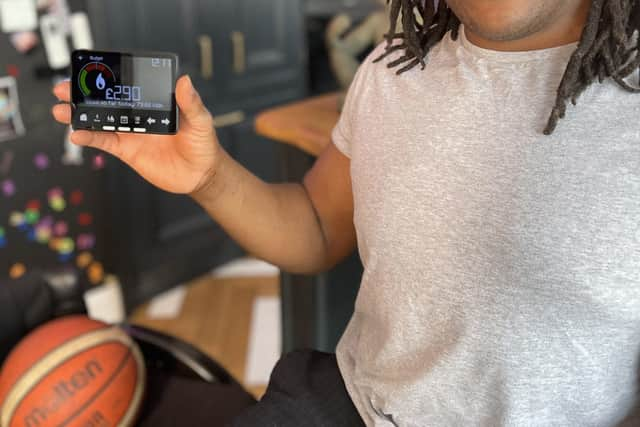A third of adults living with a disability have been unable to buy groceries at some stage during the pandemic


A study of 1,000 adults with a physical disability or a mental health condition found 70 per cent have felt more anxious about trips to the supermarket and other shops than they did before the pandemic.
Almost half (46 per cent) have found using public transport a more difficult and stressful experience, while 34 per cent have struggled to attend a non-Covid related medical appointment.
Advertisement
Hide AdAdvertisement
Hide AdBut 20 per cent missed out on assistance because their carer or someone else had been affected by the pandemic, while 25 per cent have found it hard to maintain relationships – be it friendship or romantic.
Lonely, depressed and isolated
As a result, 45 per cent have felt lonely, 50 per cent have felt depressed and 37 per cent have felt isolated because of the Coronavirus.
The study, conducted by Smart Energy GB, examined how the day-to-day tasks that many take for granted have caused issues for people with a disability, during the Covid crisis.
A quarter (27 per cent) said they were financially worse off because of the pandemic, with 14 per cent unable to get to the shop to top up their prepay gas or electricity meter.
Advertisement
Hide AdAdvertisement
Hide AdThree quarters (78 per cent) also said that they believe those living without a disability don’t understand how difficult it has been for them, during the pandemic and lockdown.
And 67 per cent went as far as to say that they felt people with a disability had been forgotten about during the pandemic.
Paralympian, TV presenter and author Ade Adepitan MBE is working with Smart Energy GB to highlight the benefits of smart meters to disabled and vulnerable people.
He said: "There have always been issues with getting around when you have a disability and since the pandemic, these things have become tougher.
Advertisement
Hide AdAdvertisement
Hide Ad"I use my hands all the time, so if I am touching stuff, I am worried about the risk of inadvertently touching my mouth or touching my eyes. It makes things emotionally and physically very stressful.
“Living with a disability or a vulnerable circumstance means daily challenges that many people might not recognise – challenges which have become harder this year.
“It could be going to the shop, using public transport, topping up your electricity, being able to see your carer or even allowing people inside your house, but technology like smart meters help to knock down some of those barriers.”
More problems caused by the pandemic
The research was part of a wider survey of 2,000 UK adults who were physically disabled, living with a mental health condition, aged over 65 or on a low income.
Advertisement
Hide AdAdvertisement
Hide AdOverall, two thirds (66 per cent) said the virus had made their lives harder this year.
But 70 per cent think restrictions on activities such as going to the shops or seeing friends and family give people more of an idea about the challenges faced by people living with a disability, on low income or that are elderly every day.
Two thirds (66 per cent) of those surveyed by OnePoll for Smart Energy GB also said having a smart meter made managing energy use easier from home.
The displays automatically send readings to the supplier, allow people to top up over the phone and provide energy use in near-real time which can help households on low incomes.
Advertisement
Hide AdAdvertisement
Hide Ad

Dan Brooke, CEO of Smart Energy GB, added: “Life’s tough for everyone right now and disabled and people living in vulnerable circumstances are being hit especially hard by COVID and its hardships.
"It’s imperative we make help and support available to those who need it most.
“Smart meters can help address some of the everyday challenges that disabled and people living in vulnerable circumstances can face.
“In particular many people have mobility issues which can make it harder to access their energy meter to take readings, but smart meters remove that barrier by sending readings straight to your supplier.
Advertisement
Hide AdAdvertisement
Hide Ad"The soon-to-be widely available Accessible In-Home Display can help blind and partially sighted people, while access to cheaper energy tariffs for those earning less than others, are other ways smart meters can make life easier."
For more information visit https://www.smartenergygb.org/en